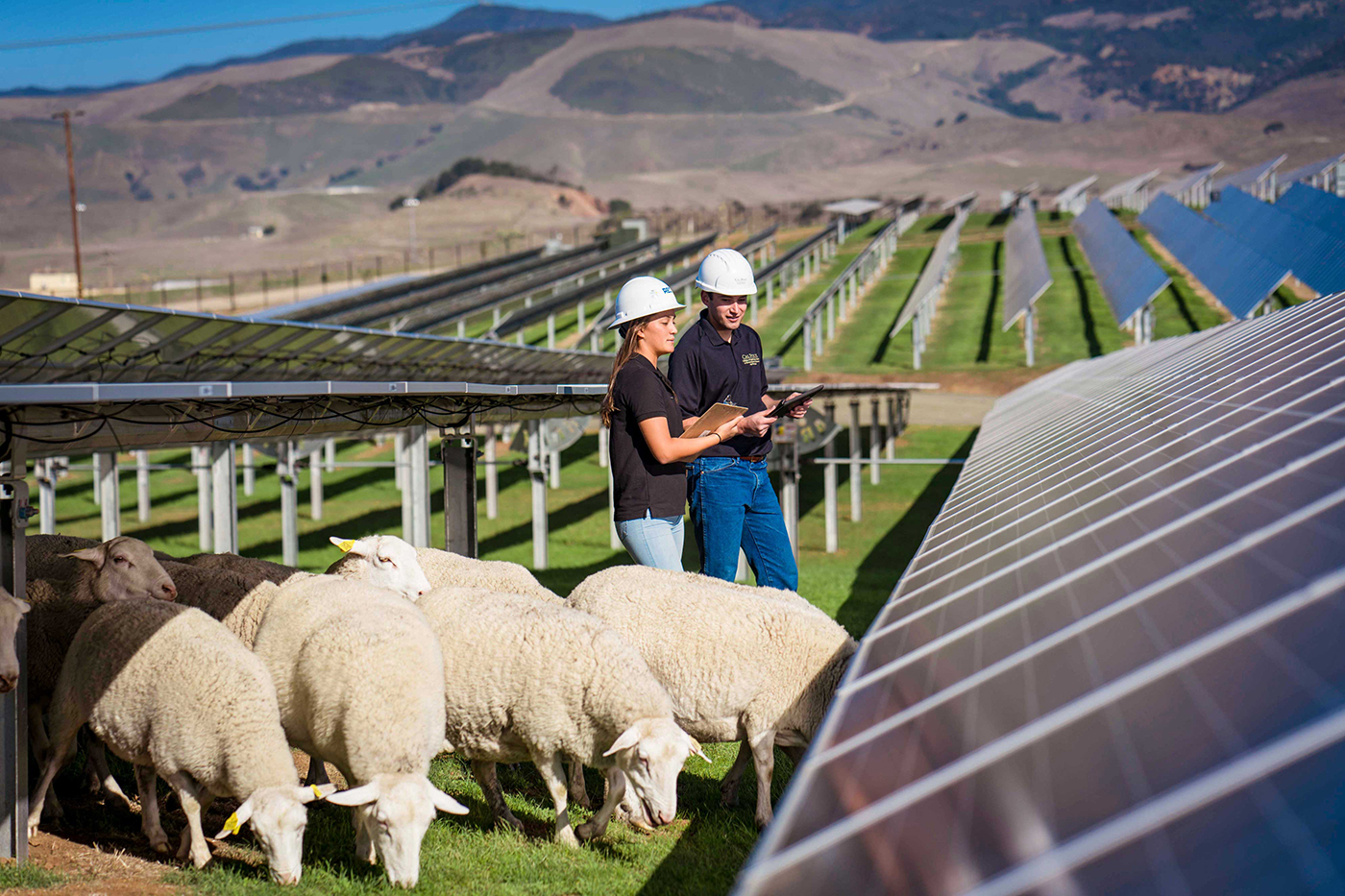A new solar farm and the infusion of sustainability in curriculum are among two efforts that helped the university earn a gold rating from a sustainability tracking system, according to sustainability coordinator Kylee Singh.
The Sustainability Tracking, Assessment & Rating System (STARS) allows colleges and universities to self-report information to measure their sustainability in categories including academics, engagement and operations.
Participating in STARS reaps numerous benefits, such as generating new ideas, making progress toward sustainability and engaging communities, according to its website.
The gold rating is an improvement from 2017, when Cal Poly received a silver rating. There are four tiers in the ranking system, ranging from bronze to platinum.
Close to a thousand institutions are registered to use the STARS reporting tool, according to its website. Cal Poly ranks third of all CSUs, falling behind California State University, Northridge and California State University, Chico, according to Babcock.
A lot of Cal Poly’s sustainability efforts happen in the background, so some students may have difficulty picking out the parts of the school that are sustainable, according to environmental management and protection senior and Green Campus Team manager Logan Babcock.
Cal Poly’s gold certification will expire in three years, so the school will likely reapply in 2022, according to Singh — with a goal of receiving a platinum score.
“There’ll be a lot of work that we have to do before we get to platinum, so we’ll definitely wait until we’ve gotten some work done to make that happen,” Singh said.
Cal Poly will create programs to address areas where they lost points this time around, Babcock said. One area the school lost points on this round was a peer-to-peer education group between staff and faculty, she said. To address this, a Green Office program is being started.
“Hopefully through that, we’ll recover and start enough things to achieve that platinum goal, which would put us pretty high ranked among CSUs, which would be a really cool achievement,” Babcock said.
A campus-wide effort
Another sustainability effort put into place are Campus Dining’s recently implemented bulk food bins — bins that allow customers to purchase foods without any packaging. The bulk food bins offer a snacks, pasta, cooking ingredients and other foods.
The bins are part of Campus Dining’s continual effort to be more sustainable and meet Cal Poly’s zero waste goals, according to Campus Dining Sustainability Coordinator Kaitlin Gibbons.
Students in Implementing Sustainable Principles (EDES 408) suggested Campus Dining install the bins Spring quarter, Gibbons said. The students polled the campus community and researched the success and function of bulk bins at other places in San Luis Obispo. The bins were installed Oct. 23.
Campus Dining had been considering installing bulk bins at Campus Market due to the effectiveness of Village Market’s bulk bins, Gibbons said. She added that the student proposal helped Campus Dining to move forward with summer planning of the bulk bins’ installation.
Sophomore computer engineering student Roma Raje said she was pleasantly surprised to find that the bulk bins had been installed.
“Since I’m cooking for one person, [the bulk bins] help me save money by allowing me to buy only the amount that I actually need,” Raje said.
The bins contain a large variety of products for sale, ranging from flour and rice to energy bars and chocolate-covered pretzels. The products were chosen through poll responses and recommendations from Campus Dining’s bulk food vendor, Sunridge Farms.
Moving forward, the choice of products may be updated to include new items, according to Gibbons. Campus Dining will be relying on feedback from customers to determine what patrons may want to see available in bulk, Gibbons said.
Campus Dining may expand the bulk foods section at Village Market, according to Gibbons.
Campus Dining is also working on selling reusable bags and containers to allow customers to use those to purchase in bulk instead of the single-use plastic bags currently in use, Gibbons said. Starbucks locations across campus are also set to reduce their landfill contributions by only offering compostable straws upon request and switching to nitro lids.

